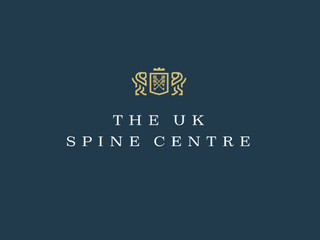
If you’ve had exposure to online marketing you’ve probably wondered; What is SEO? How does SEO work? Is SEO the same as Organic Search? Some digital marketing agencies may convince you it’s a dark and complex art form. Leaving you unsure about the benefits or where your budget is being spent.
At Green Ginger, we do digital differently. We want our clients to learn and understand how digital marketing can help their business. We don’t believe in smoke and mirrors. In this article, we’ve answered some of the most common SEO questions. Focusing on what is important to you, giving you an understanding of what SEO is and how it can help your business.
What is SEO?
Search Engine Optimisation (SEO) is all about increasing the visibility of your website. Appearing higher in the search results pages and growing your traffic. Search engines, such as Google match search queries to websites they deem relevant through a series of algorithms. The sites they believe are most aligned to the search query appear higher in the search results.
Algorithms review the searcher’s query and score the website on how relevant it is. Google looks at factors such as website quality, site usability and the user’s location. Google wants to provide the best experience to every searcher, and that’s why it critiques sites closely before showing the best ones in order of relevance to the searcher.
Getting to page 1 is tough, getting to position 1 is even tougher. As you can imagine, people are unlikely to scroll through pages and pages of results. This means that it is critical to ensure your site appears high up the search rankings. You need a combined strategy of both on-page and off-page SEO. This involves a lot of hard work and some patience.
How does SEO work?
The objective of SEO is to show to the search engine that your site is the most relevant. Your content is engaging and matches the user’s query better than your competitors, and the visitor is going to have a great experience. The most relevant sites are rewarded with the coveted number 1 position or even position 0 on Google and Bing.
With a market share of 92%, most marketing experts would recommend optimising your site to perform best on Google. Google reviews 200 factors when ranking your site, giving you plenty of areas to focus on to improve your site’s performance.
Unfortunately, Google doesn’t share what those ranking factors are. They want website and search engine optimisers to focus on the quality of their sites for the end-user. We rely on industry data and our test and learn approach to understand what works and to estimate how Google determines relevancy.
What are the most important SEO ranking factors?
Google frequently update their algorithms. But there are a few key ranking factors which continue to be important as we move through 2020. We’ve grouped these below into 3 key themes:
Technical SEO
Focusing on improving the technical aspects of your website, ensuring solid foundations are set on which to grow rankings. Key considerations for technical SEO in 2020:
- A secure site with URLs which Google can easily crawl and understand
- A fast loading site across all devices, especially mobile (ideally less than 2 – 3 seconds)
- A mobile-friendly site which is user friendly across all devices
- Strong technical SEO, optimising your code to assist crawling and indexing
- Positive user signals such as high click-through-rates, low bounce rates and strong site engagement and duration
Content
Focusing on the keywords and articles on your site. Ultimately telling Google what your site is all about and the products or services you offer. Key considerations for content in 2020:
- Optimise content which is useful for the end-user, but also tells Google important information about your site. For example, Page Titles and Meta descriptions, keyword-friendly URLs, relevant and optimised product descriptions
- Editorial content which adds value to customer journeys. Either by providing education, information or simply entertainment for the user. Rather than focusing on the hard sell
Off-page
Relates to all actions happening off your site but still impacting your rankings. Key considerations such as:
- A strong domain authority
- A positive link web across inbound and outbound links. Which ultimately provide ‘votes’ of relevancy for your site and indicates quality to Google
- A good social presence with relevant social shares
- An optimised Google My Business presence
Google also places huge value on great customer experience. Sleek website design and great functionality, will only put you in good stead for ranking well in this area. If having read the above list you are unsure how well your site is performing. We’d recommend you undertake an SEO audit, this will provide you with key areas to focus on.
Why does SEO matter?
Across the globe, there are 3.5 million searches on Google every single day. It is the first port of call for searchers looking for information, products and services. To get a slice of those customers, you have to invest your time into developing your site and refining your SEO performance.
SEO keeps search engines fair. It allows every site an opportunity to rank highly and deliver a positive experience for the user. BackLinko recently analysed 5 million Google searches. They aimed to understand how CTR (click-through-rate) changed depending on a businesses position on Google. Their findings were fascinating:
- On average moving up a position within Google changed CTR by 30%
- Ranking number 1 resulted in a page being 10x more likely to be clicked on vs. being in position 10.
Advanced Web Rankings also have a great tool available that allows you to review historical CTR’s by category and country. A really useful tool when forecasting any organic or paid activity.
That’s why SEO matters. If you don’t focus on your SEO performance, you are reducing your chances of driving ‘free’ traffic to your site.
How long does it take for SEO to work?
A simple question but unfortunately not a simple answer. How long it takes can depend on the following:
- Age of your site
- How quickly you can implement changes
- Level of competition (remember everyone else is trying to get to position 1 at the same time you!)
- Website design
- Geographic location
- Target market and audience
Generally speaking, you can expect to see your SEO performance start to improve in around 4 – 6 months. That certainly does not mean you will see all of your target keywords in position 1 and this is impacted by the competition.
Competitive search terms (such as for fashion retailers) will take longer than for specialist products and services. SEO is as a long term investment. Quick fixes and results can be achieved using other digital marketing channels such as PPC. SEO is a channel which will grow and mature over time as long as you continually invest time and effort.
At Green Ginger, we offer a synergised approach to search marketing. Ensuring both paid and organic channels are working in harmony and budget is used in the most efficient ways.
How do I measure SEO?
So you’ve decided to invest both time and budget into improving your SEO, and understand it will take a few months to see the fruits of your labour. How do you ensure your efforts are working?
Like all digital marketing, this comes down to tracking correctly. Our first recommendation is to make sure you have Google Analytics set up correctly. This is a free tool you can use to understand the value of all your channels, not just SEO.
It segments the data by channel so you can review and understand performance. Use Google Analytics to drill down into landing pages, exit pages and engagement metrics to understand how users are engaging with your site. Once you have Google Analytics set up, we would recommend developing a set of core keywords you wish to rank for. Tracking these over time using a tool such as SEMrush or Moz will enable you to see how these are impacted by the SEO strategy you’re implementing.
It’s important to use a mix of keywords with a low and high search volume. These will vary in how competitive they are and ensure you are ranking for an array of keyword variations. Visibility and keyword rankings are important. But you should also use Google Analytics data to understand how SEO has assisted conversions. This means how your SEO is contributing to the customer journey. This can be particularly useful when you have a strong bank of editorial content on site, which is driving browsing journeys, which later come back and convert.
Summary
Use SEO as a long term investment for your business. Focus on both on-page and off-page tactics and delivering an excellent experience for your customers and you won’t go far wrong. Our Head of Digital at Green Ginger has these parting words of advice for you:
“Focus on the end user – make sure when entering your site their experience is as seamless and quick as possible. Think about what they would like to see when they are there. Optimised, easy to read, digestible content and a sleek design and customer experience. That is what will drive your SEO forward”.
Nick Cranwell, Head of Digital
Good SEO takes time, but that’s where Green Ginger can help. We’re experts in delivering SEO and have experience doing so for some of the UK’s biggest retailers. This means we can provide you with the right strategy. Identifying quick wins and longer-term initiatives to provide you with an SEO strategy to drive forward your performance.
If you want to know more about how we can kickstart your marketing, or if you would like a free SEO site checkup – get in touch with us today.














